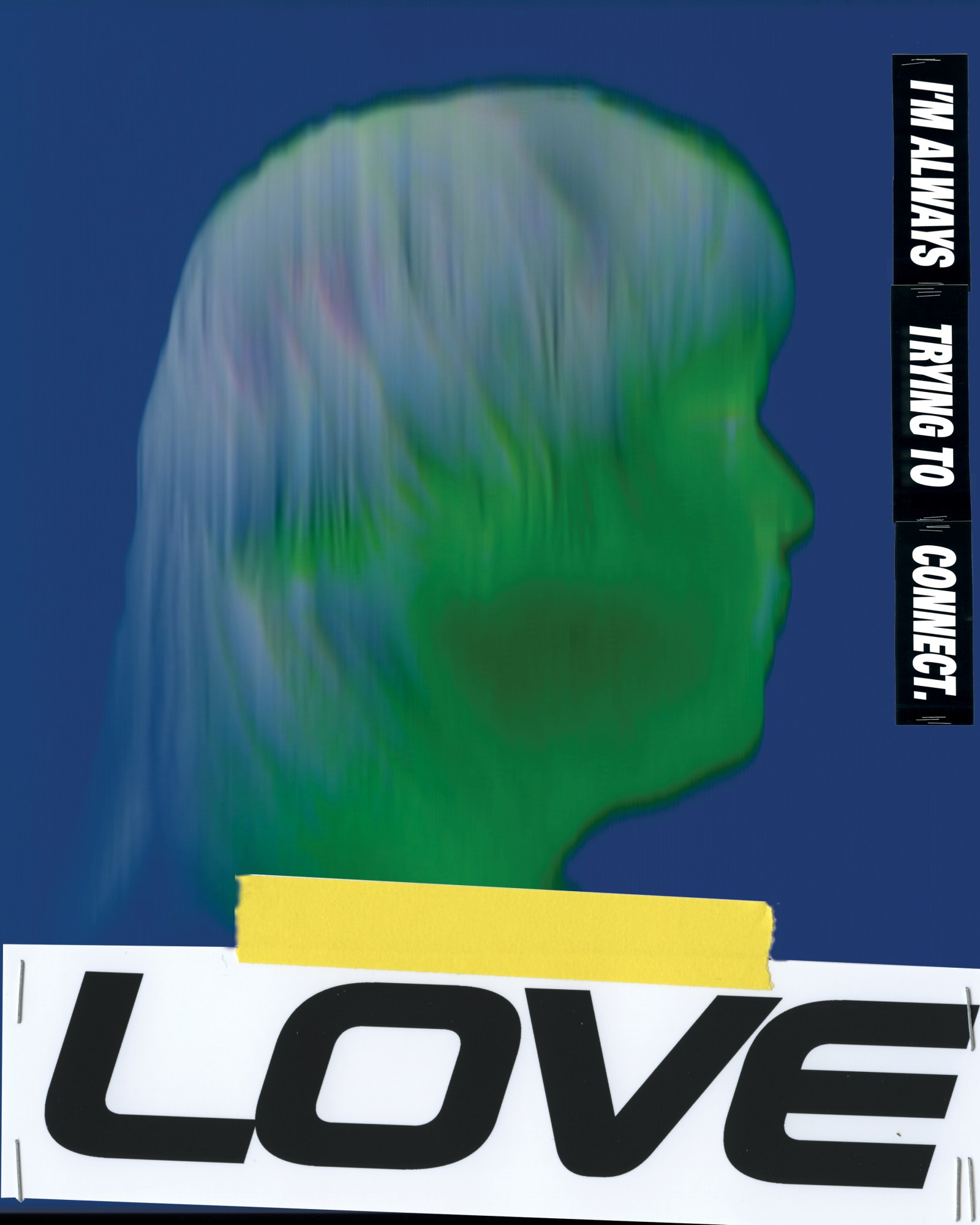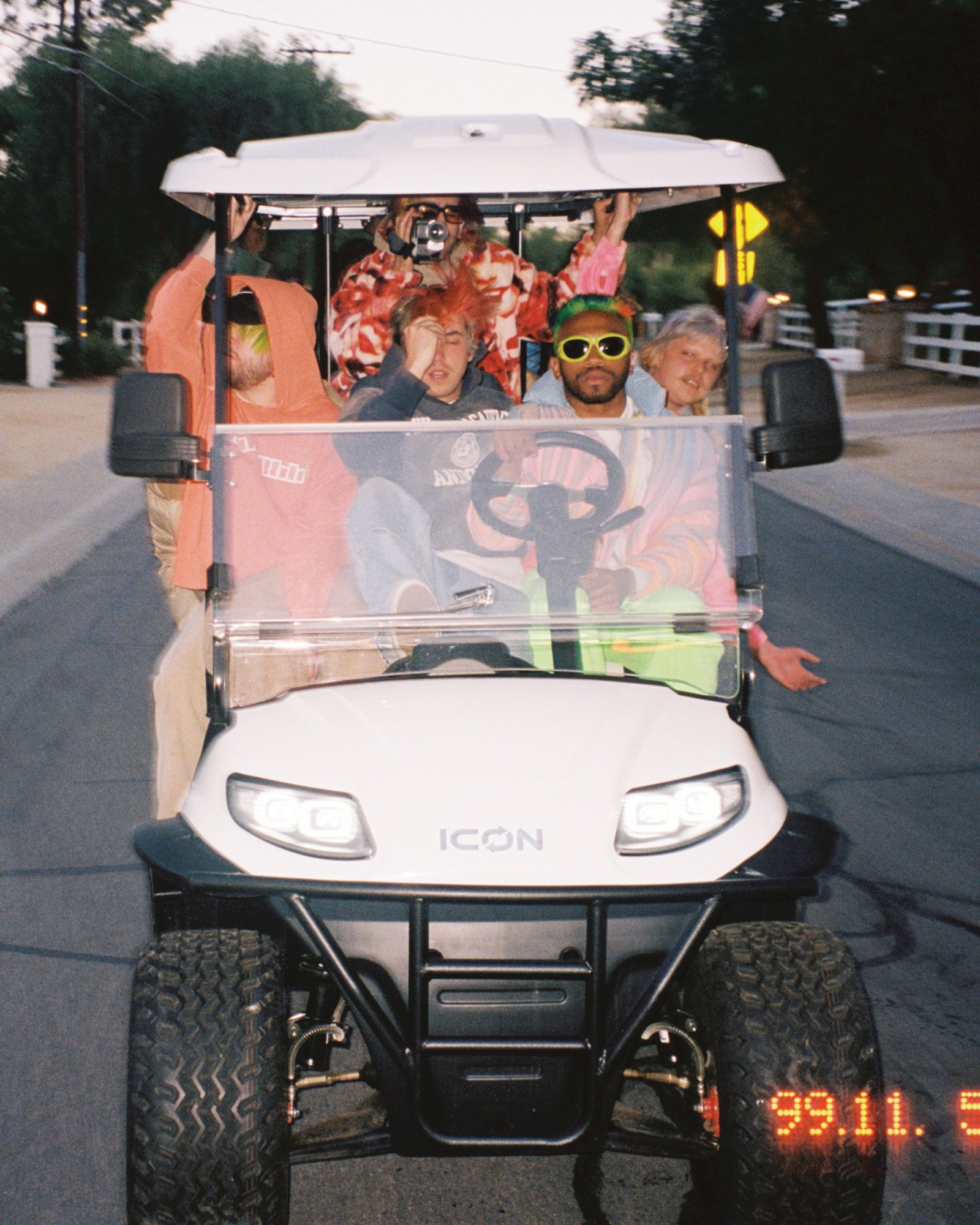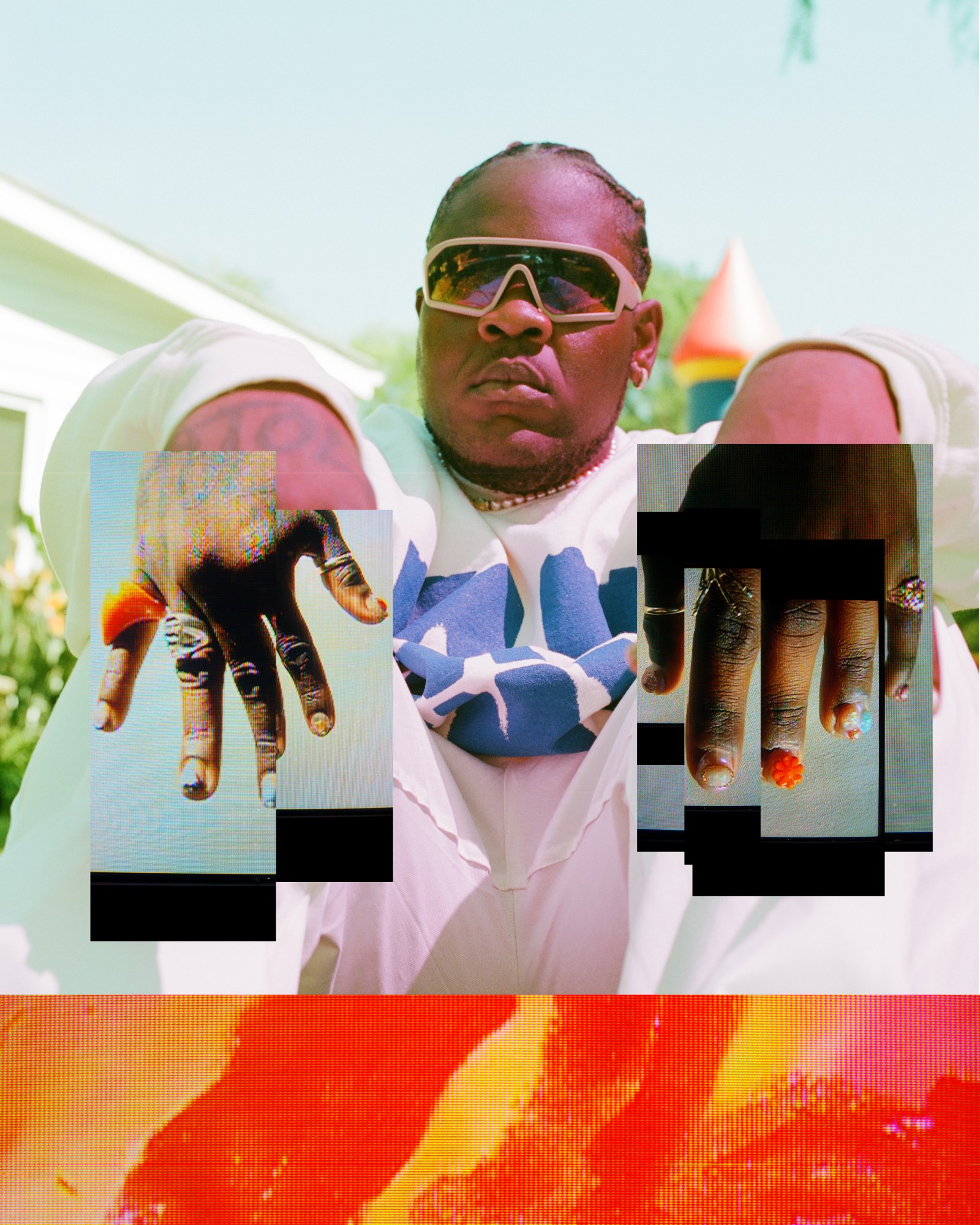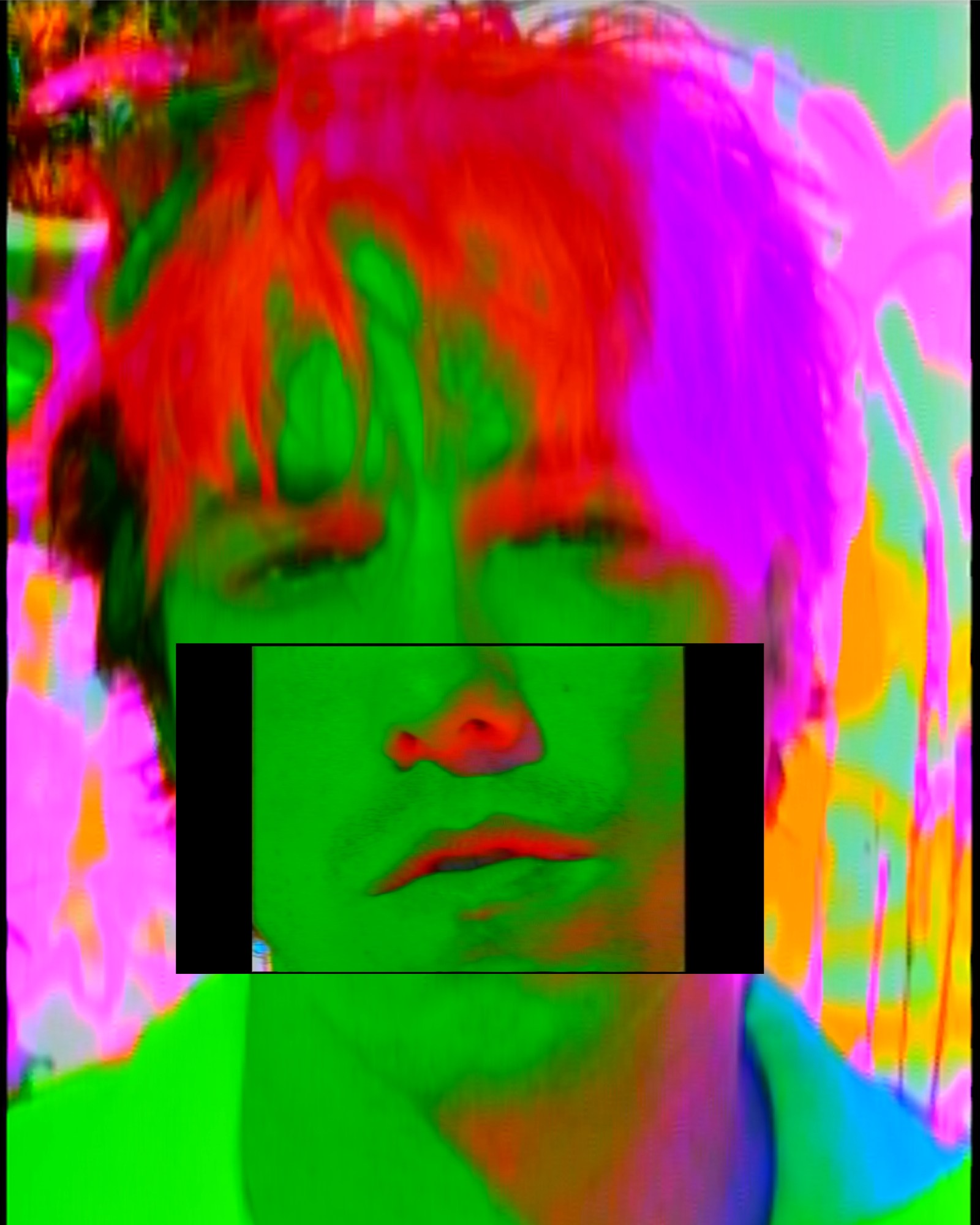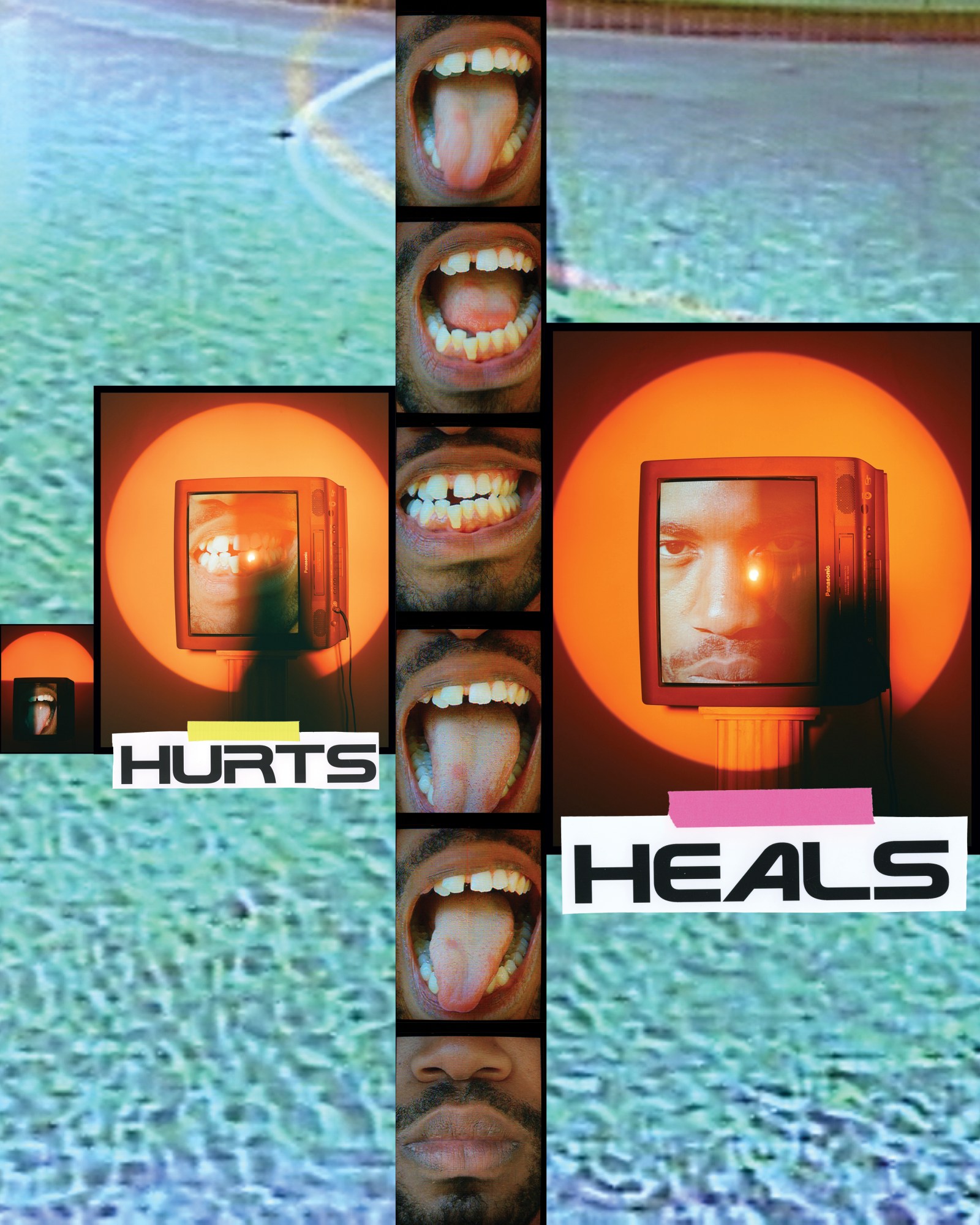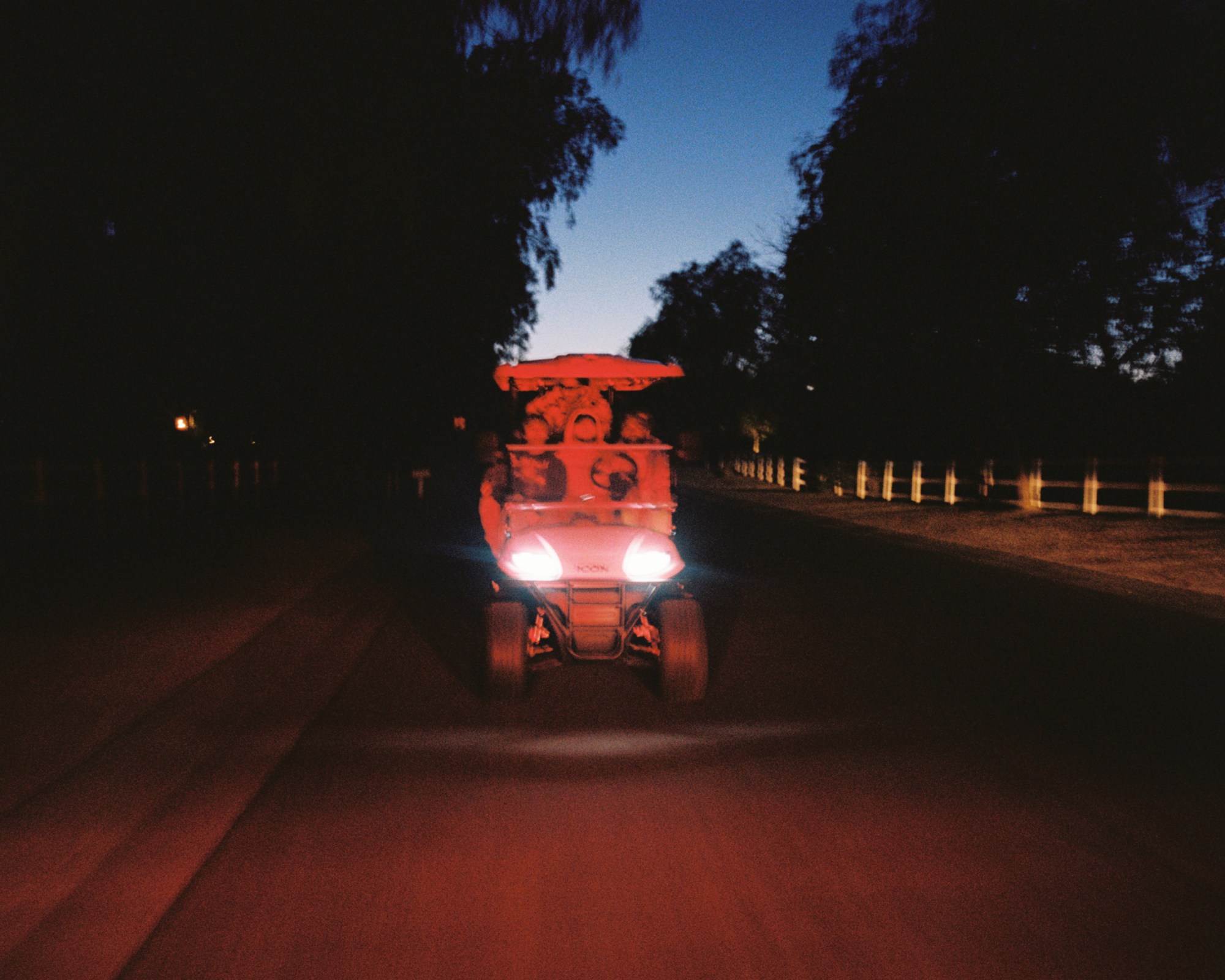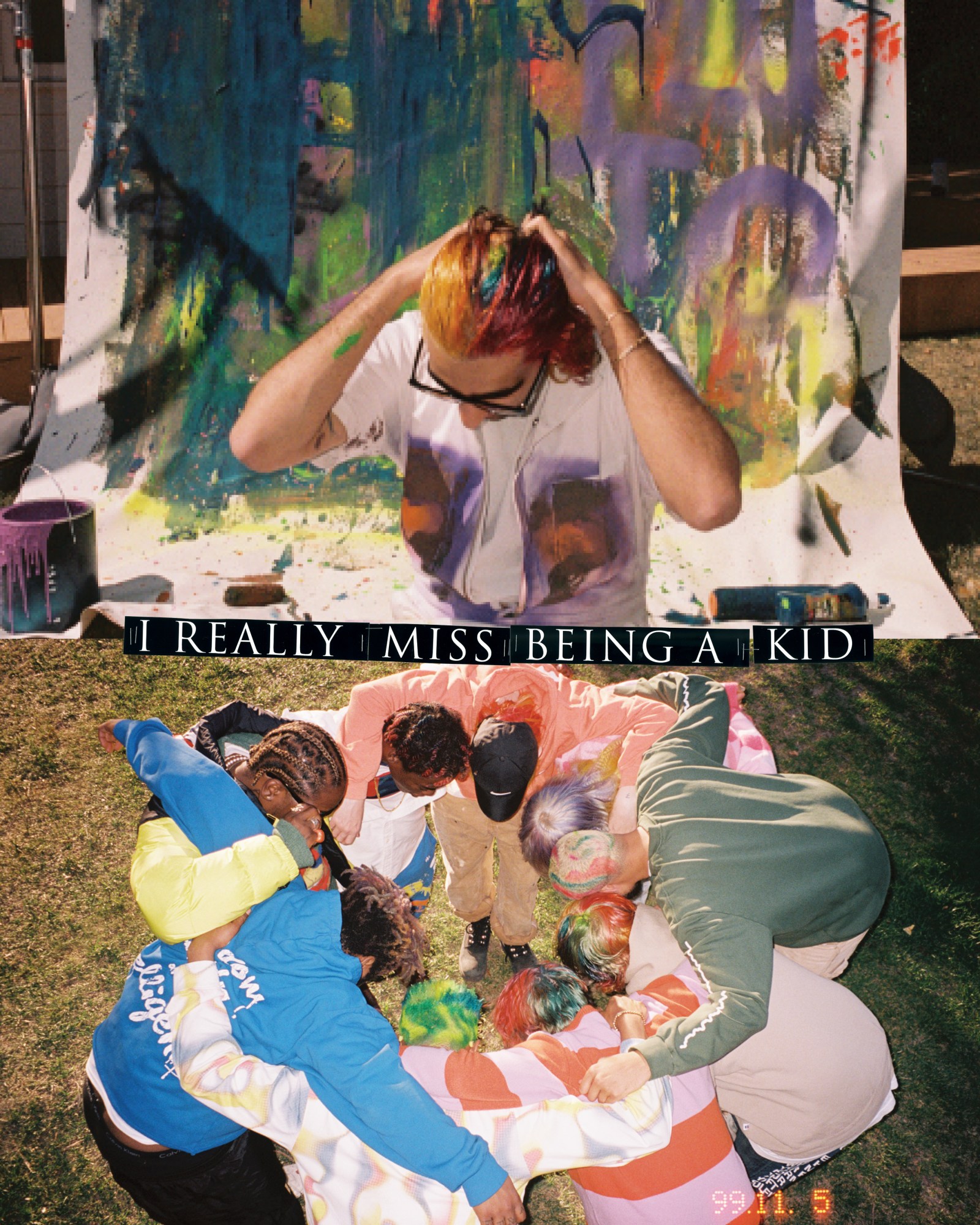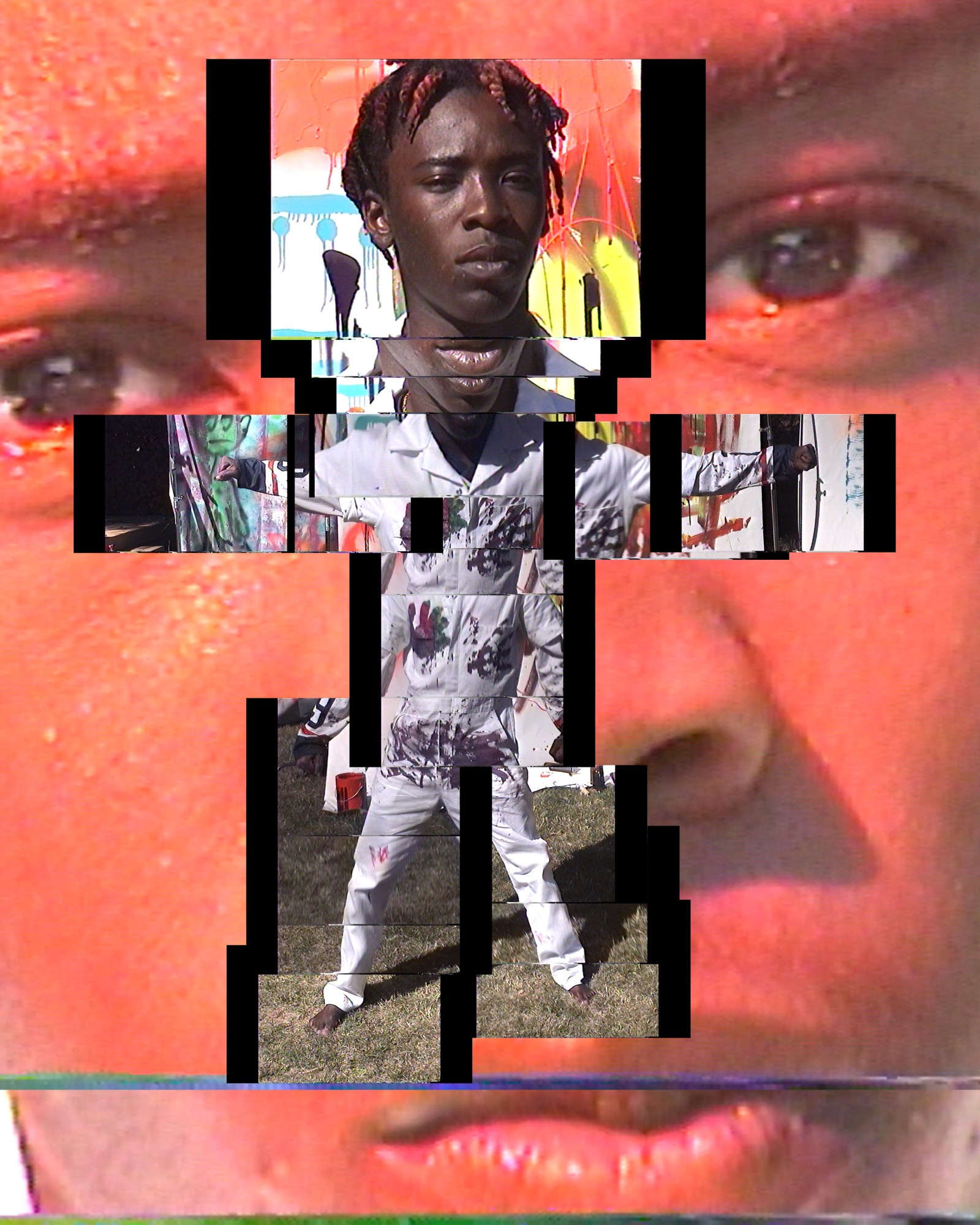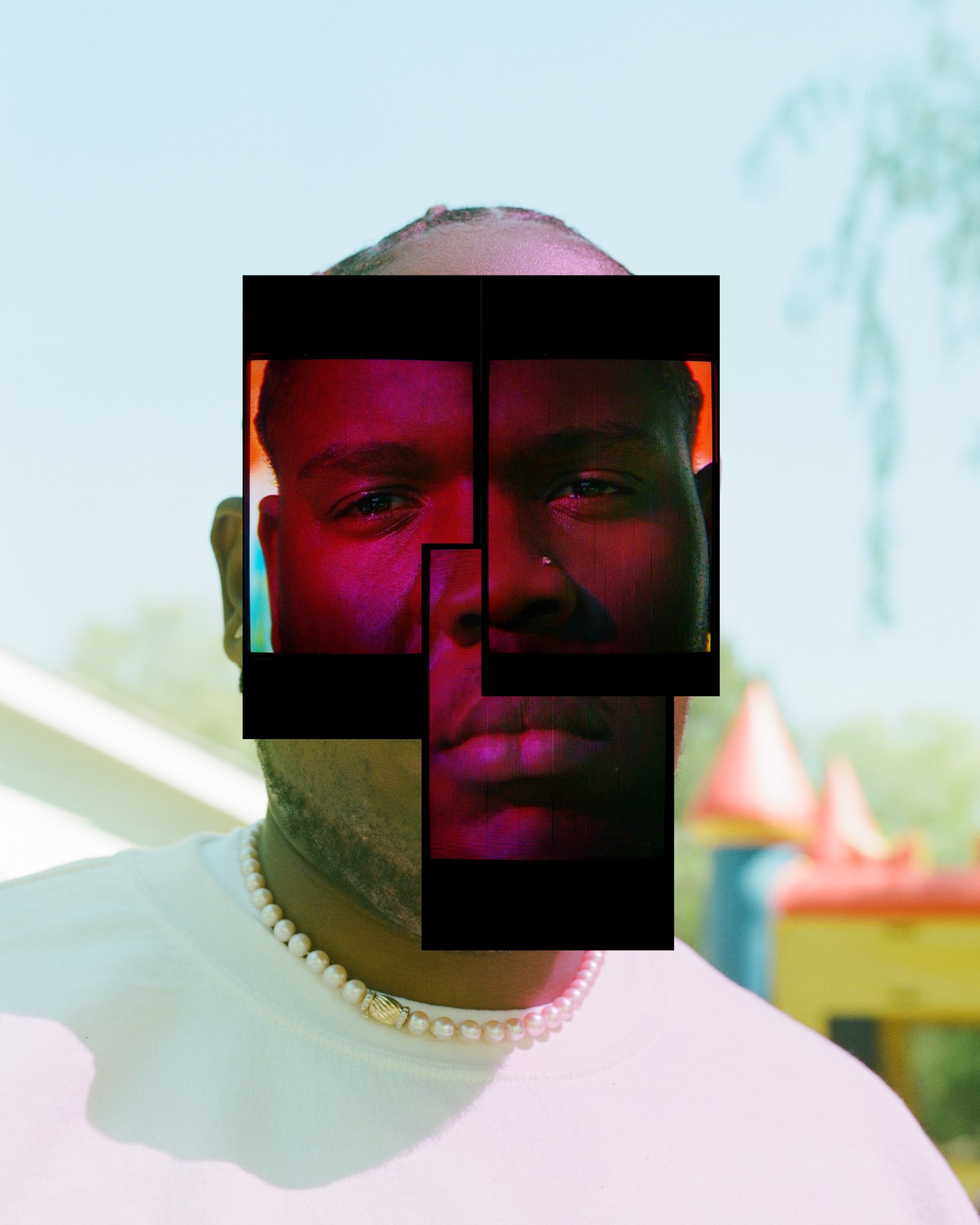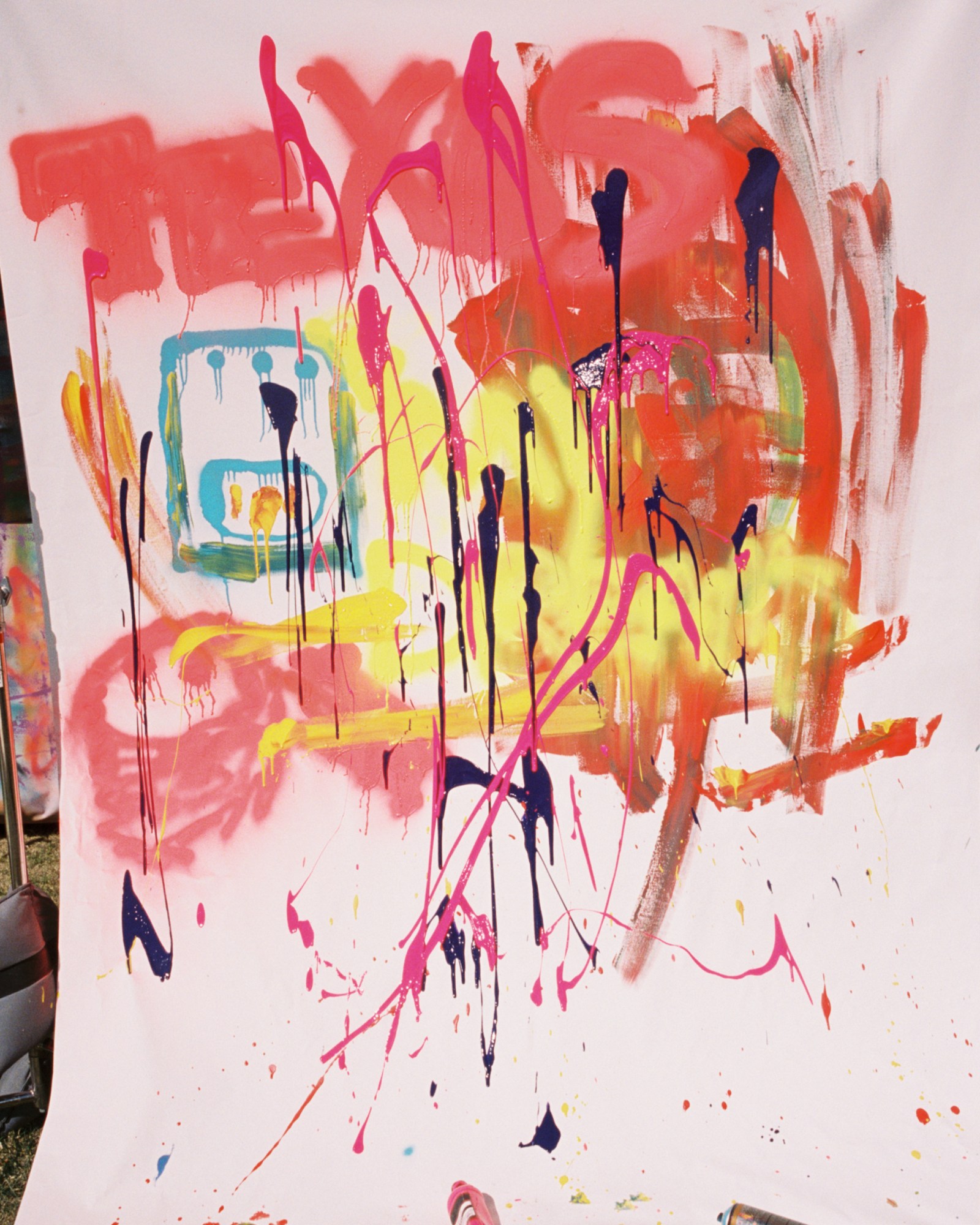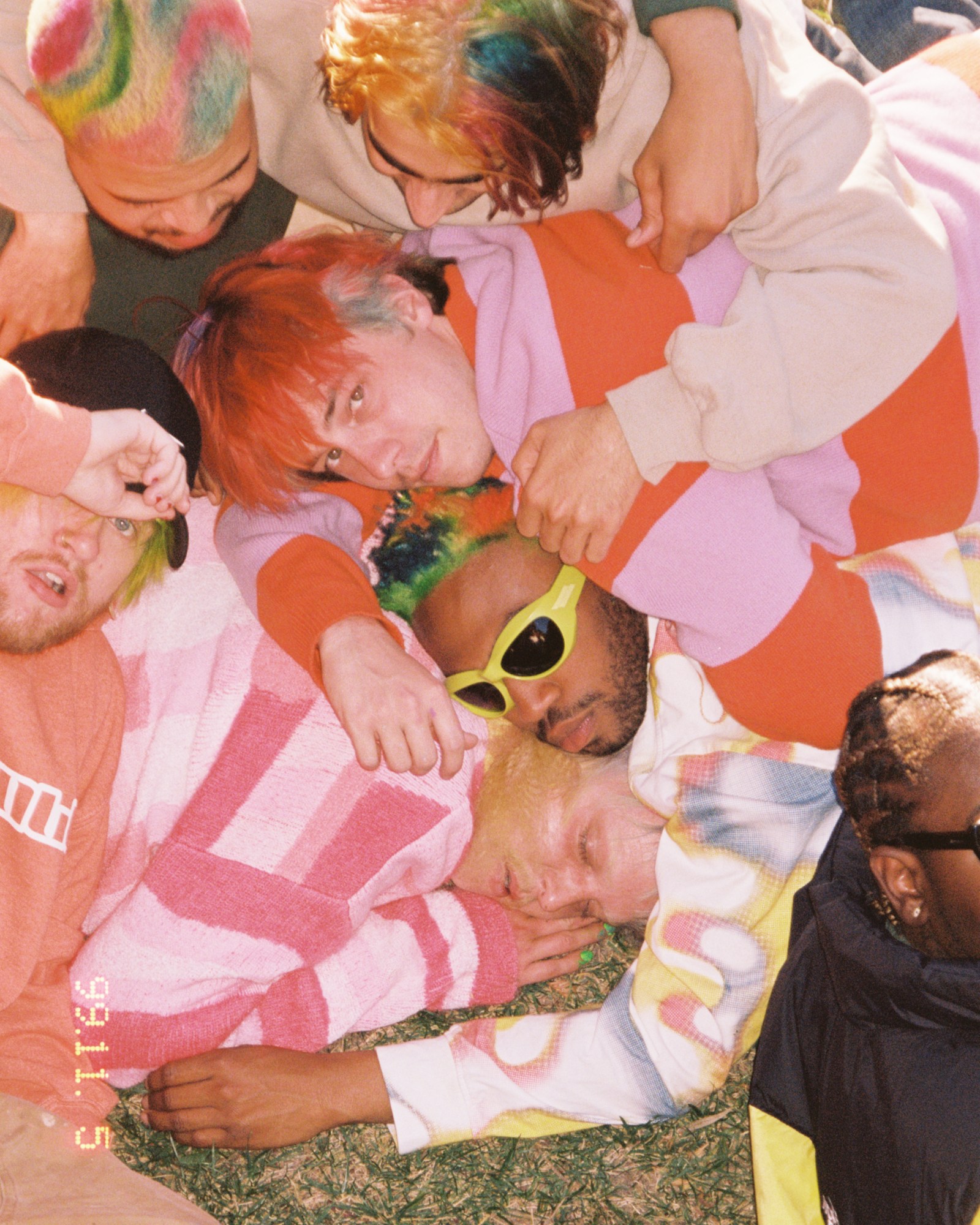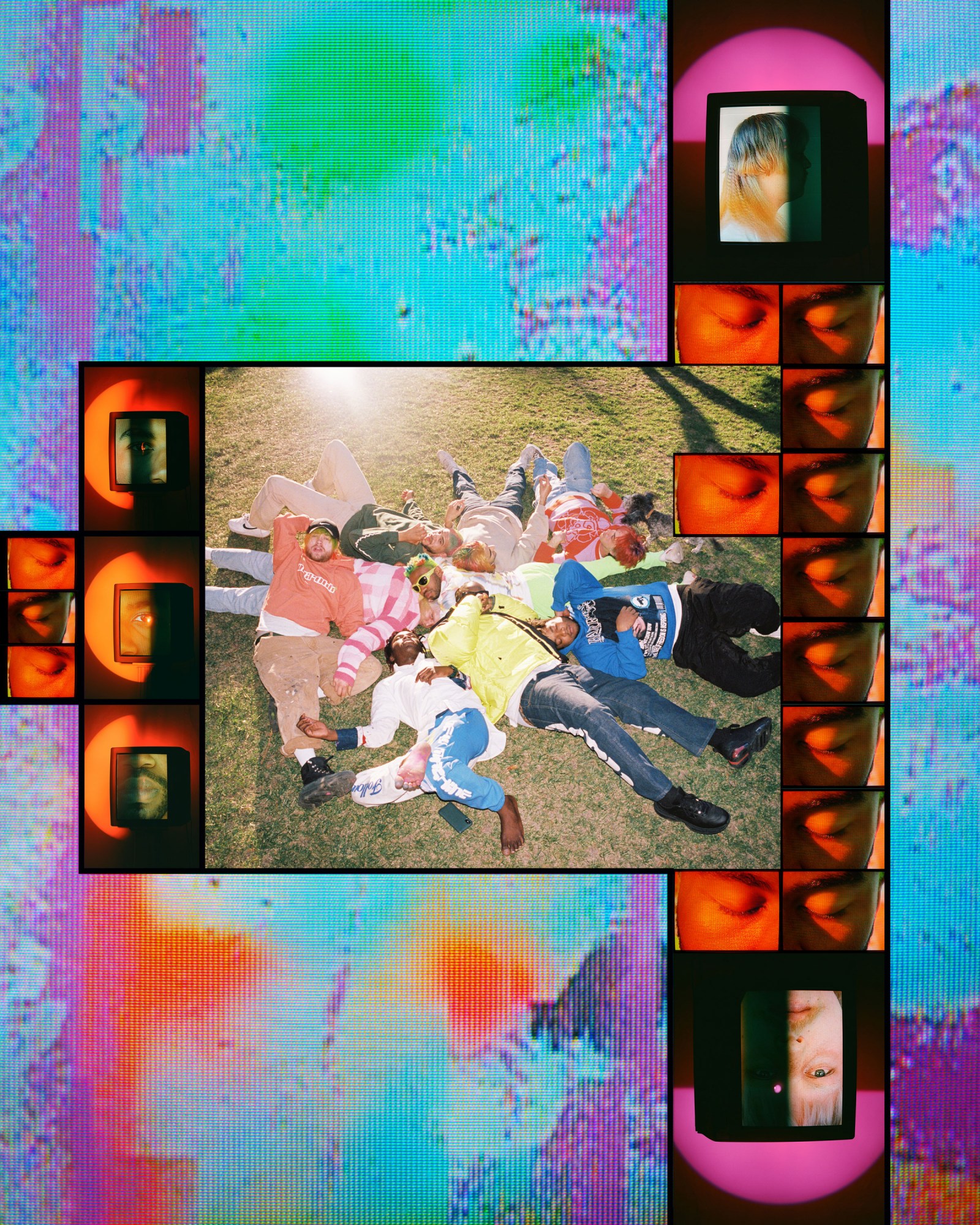To celebrate the release of Brockhampton’s deeply personal sixth album, Roadrunner: New Light, New Machine, i-D collaborated with the band on a limited edition zine and T-shirt design. Featuring original imagery shot in LA by photographer Tyler Kohlhoff, the zine sees Brockhampton dive deep into the stories behind the record in conversation with their friend and fan, Virgil Abloh.
Virgil: You’re about to release Roadrunner: New Light, New Machine. It’s been almost two years since your last album, Ginger. How have your lives changed since then?
Romil: I feel like everything has changed since Ginger. I was watching this Dave Chappelle piece, where he’s talking about how now is the first time that everyone has to be like, ‘Yo, do I like my house? Do I like who I live with? Do I like the city I’m in? The clothes I wear every day?’ It has been this period of forced self-reflection, and I feel like that has forced us to approach music in a way we never have before. There’s some songs on the album where it’s just one member of Brockhampton, or two members. You know, Jabari’s an artist now, he wasn’t singing before. Ian’s making beats now, he wasn’t making beats before. It felt like it was a great time to really do the things we wanted to do, like a reset. It felt like I was making an album for the first time all over again.
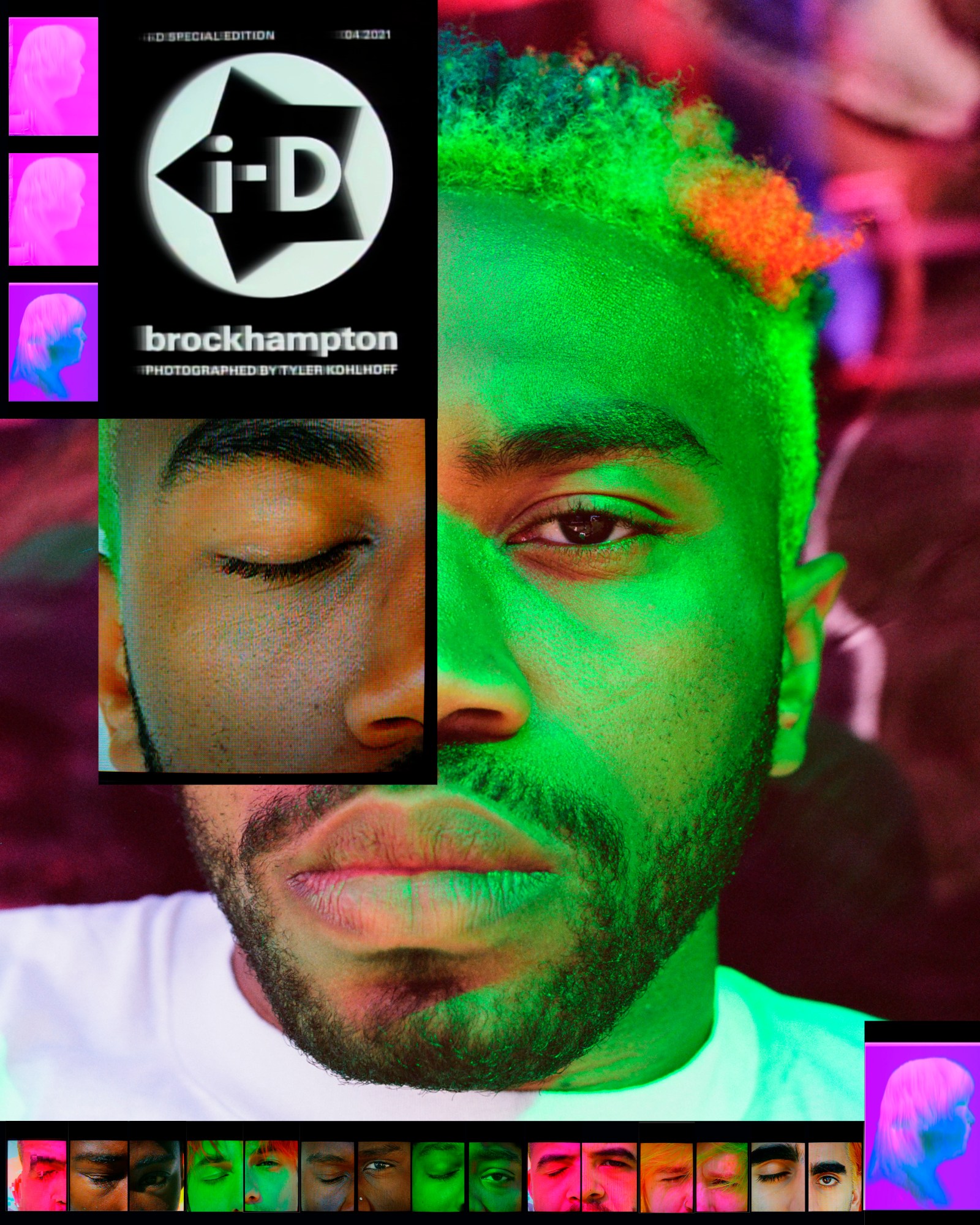
Virgil: I look at this album as not only a sonic masterpiece of today – of 2020 and 2021, when everyone is campaigning for what kind of world we want to live in – but also, something I couldn’t stop thinking about was what if Salvador Dalí could programme kick drums and rap? What if he could paint with hip-hop brushstrokes and not be limited by it? What I mean is that at the moment our pop culture is riddled with people playing the part. And from the first moment that I met you guys at Coachella by the spicy pizza line, I’ve always said that there was an authenticity to you, of kids that are just doing it for the art of it versus doing it for the Instagram of it.
Romil: Last year really forced you to do things for the art of it, because you couldn’t go to the club, you couldn’t go to the show, you couldn’t do anything except sit there and focus on the art. It came from a vital place for me, personally. I was approaching it like, ‘Alright, let me just put my all into it. Everything I can, every ounce of me.’ And by doing that I can accept whatever the outcome is, whether people love it, hate it, don’t care about it, don’t listen to it. At least I could say we put everything we could into this album. There’s nothing more we could have done.
Merlyn: We are farmers, we grow this shit for ourselves.
Joba: I think it’s really interesting, how many fucks you can give until you realise you don’t care. You know what I mean?
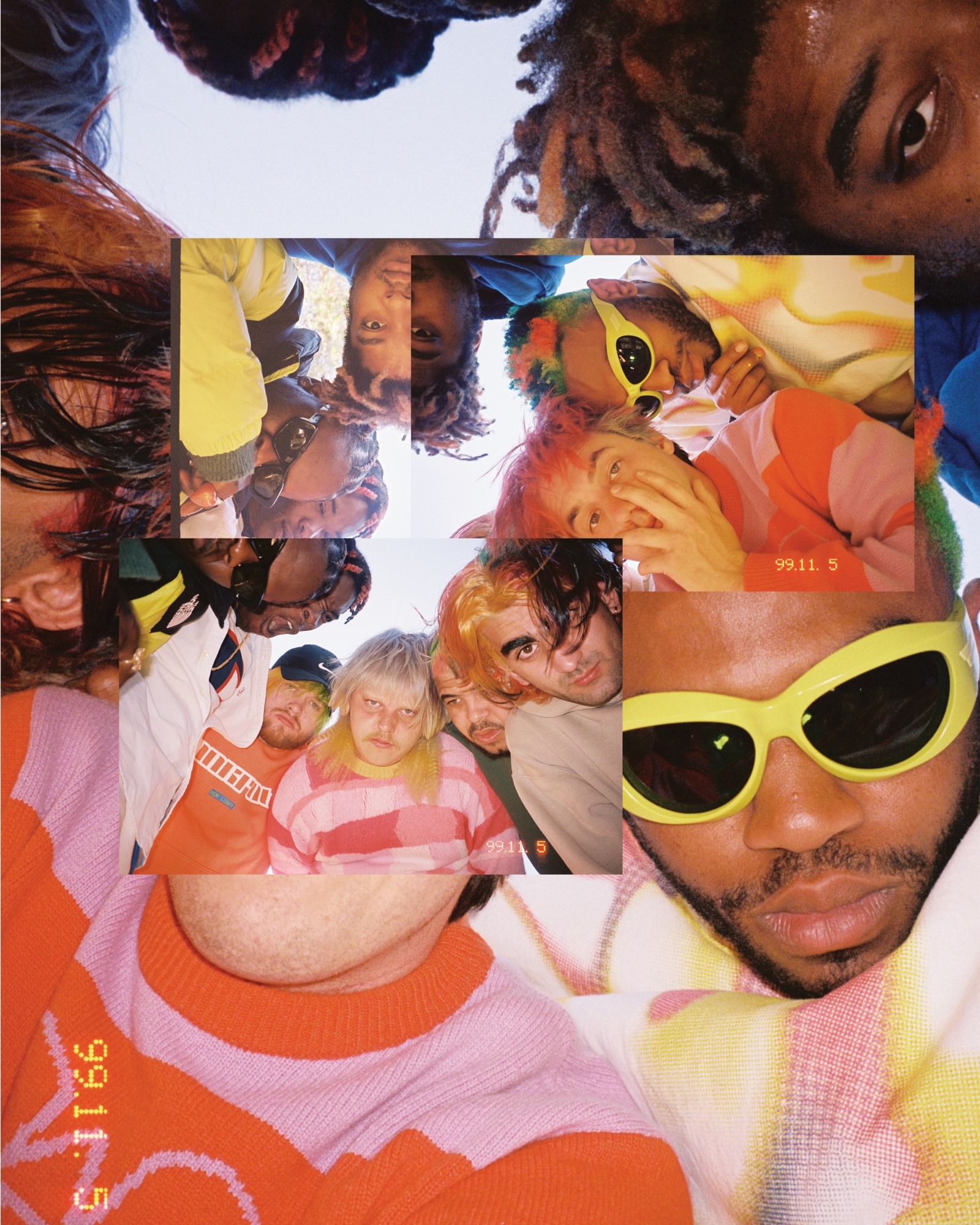
Virgil: What I love, coming out of 2020, is that the land is a lot more focused. The Brockhampton team, me, all of us as creators who are making stuff that we love, we’re sort of halfway in the grips of the jaws of death, of your following or community, right? How we’re built as humans is to consume something and then reject it; kids want to move on, there’s always some new shit. And what I love is that in the album you can hear a solidifying of a position regardless of the ecosystem around you, and that’s how I’m rating and judging creative outputs at the moment. It’s the confidence level. The word ‘artist’ should be capitalised with an ‘A’. It’s for groups of people that are dedicated to expressing themselves regardless of what the ecosystem is telling them to do.
Merlyn: I was just mad inspired by other people in the group that put it all on the page. This was therapy mixed with creativity for a lot of us, particularly Joba. He inspired me with his transparency and authenticity, and it doesn’t feel like it was really for anybody but him and his loved ones.
Dom: That’s so fucking real, I completely feel you on that, Merlyn.
Joba: I mean, this album hurts, honestly. It hurts, it heals, I feel like that’s why it’s so special. It kind of hits all the reasons we care, you know what I mean?
Dom: Yeah man, I completely agree. It’s kind of encapsulating all of life, not just happy and sad but all of that in between shit, and some of that shit that’s really, really painful to dig into. Like Merlyn was saying bro, I have so much respect for the dive that you took with what you decided to do in this project. It definitely inspired me to dig deeper.
Joba: I remember I was writing a verse for “The Light Pt. II” and Kevin came in, and I asked him, ‘Man, why do I do it?’ At the time I said, ‘To help other people’. I feel like to be in Brockhampton is to always be considerate of other people and the ecosystem that you referenced, Virgil. But it’s really a delicate balance because we’re taking it all in, while at the same time giving it all out.
Dom: This would exist for the people it needs to exist for in the group who created it, even if no one else ever heard it. It needed to happen.
Matt Champion: I liked what you said about the ecosystem in this industry. It’s very predator versus prey, and you’ve got to really prove that you’re hungry to be a predator in any sort of creative aspect, to show how much you care about your craft and what you’re doing.
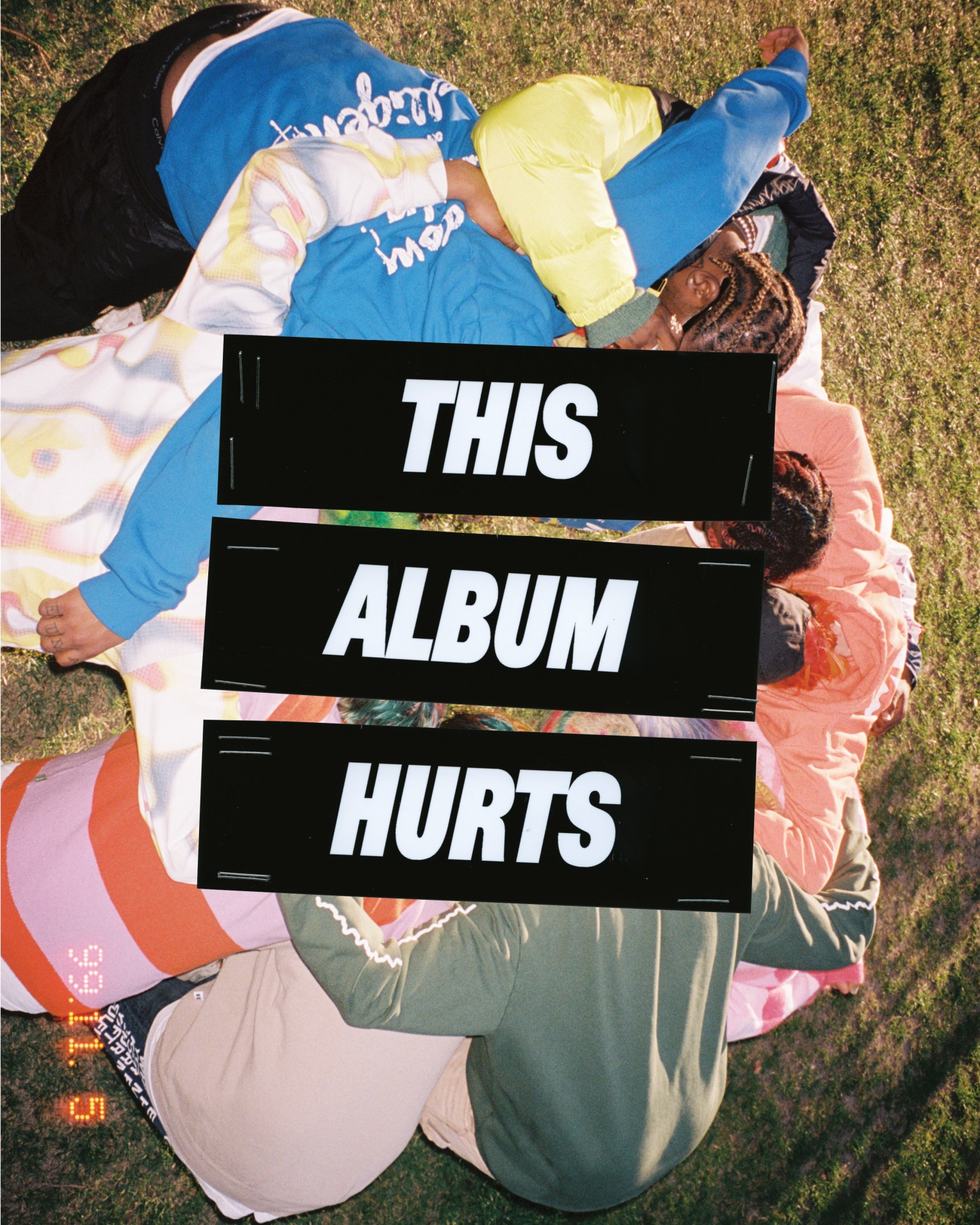
Virgil: Yeah and that weight of waking up every day being on a new rung of the ladder, stepping up each time. And even with all the personal shit that everyone goes through, being ready to be like, ‘Alright we’re gonna step on stage right now’.
Romil: I wanted to go back to that ecosystem thing real quick. I love that, because I feel like the greatest artists force the rest of the world to come into their own ecosystem instead of trying to find their way into the public’s. Everybody steps into Warhol‘s world, you know what I mean? It’s the long game and it’s hard. We’ve always kind of felt a little separated from everyone else. But I feel like with this album we’re starting to figure out a way where people can come to us and view the world through our eyes and it will make sense.
Joba: I remember Merlyn and I were talking, and I forget what you said exactly, but it was something about how humans are best when they mimic nature. This album was very much like a school of fish. No one can explain why that happens but it’s beautiful. You see it and you can’t deny it. I feel like that’s the ecosystem in a way.
Dom: We’re all moving together, but also at the same time, at any one point, any individual can be like, ‘I need to take the lead in this moment and bring us here’. And we’re all going together, you know?
Joba: There’s a trust, an unspoken faith.
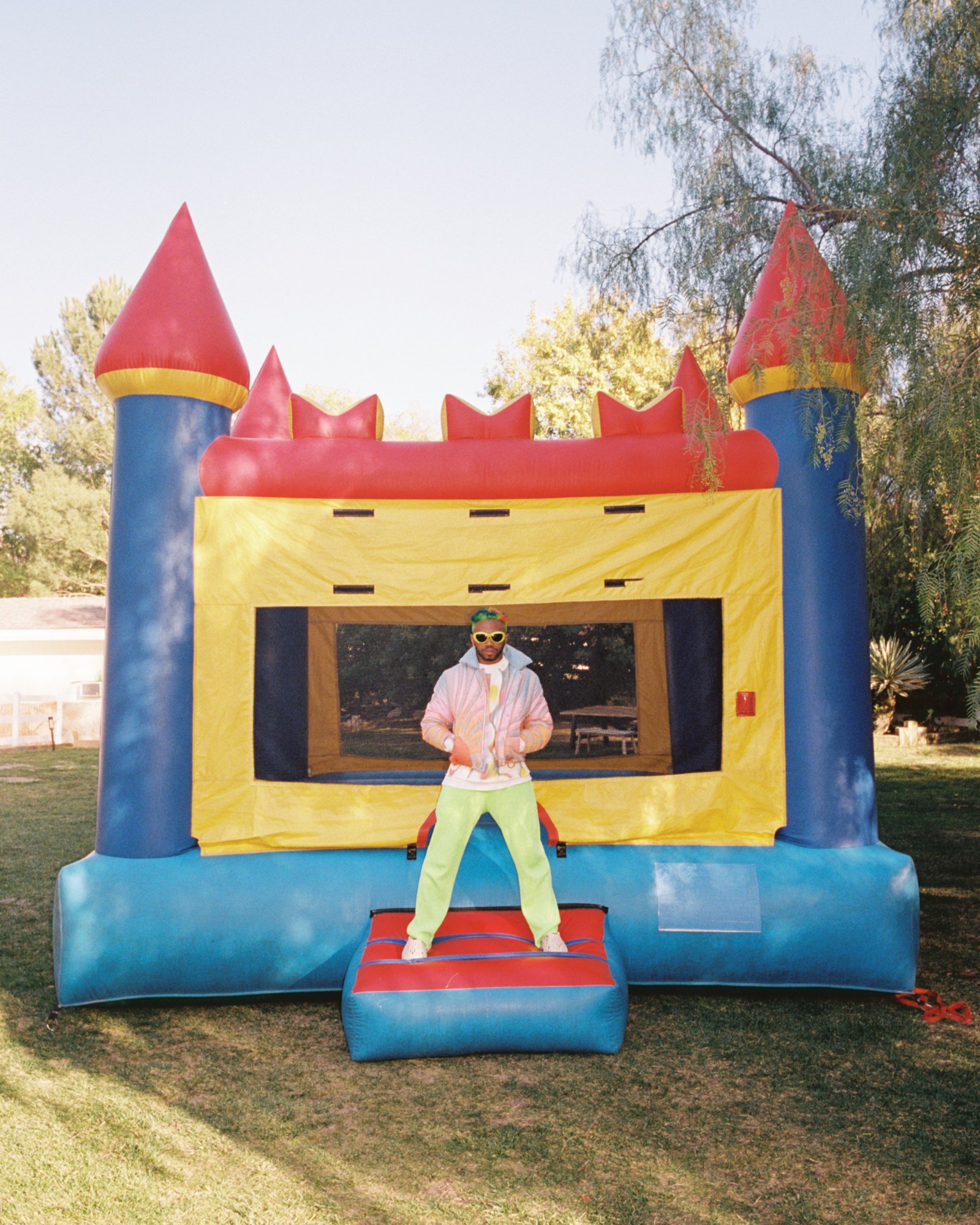
Virgil: What were some of the processes of putting this album together? Tactically, were there certain songs or beats that came early and were like, ‘Oh, this defines the album’? Or was it that you had a huge body of work and you guys edited it down and refined it?
Jabari: This album took so many different shapes, man. I feel like there came a point where we got three songs — “Buzzcut”, “Chain On”, and “Windows” — and the feeling of those three songs together is the feeling we were trying to get throughout the entire album.
Romil: We went to Rick Rubin’s house. He’s our Yoda. And he’s like, ‘Yo, those first three songs are some of the most exciting music I’ve ever heard recently.’ We’re like, ‘OK, let’s just keep chasing that. If it blows that guy away, let’s keep chasing that.’ But I would say that we made three different albums. When we started it, we were like, ‘Yo, let’s make a greatest hits album: we want to kill the club, we want to kill radio, we want to make an inescapable album’. And then we were trying to make something more rap-focussed, more aggressive, more about what’s going on in the world. I feel like through making the album it kind of just started to reveal itself. The music told us what we needed to show the world.
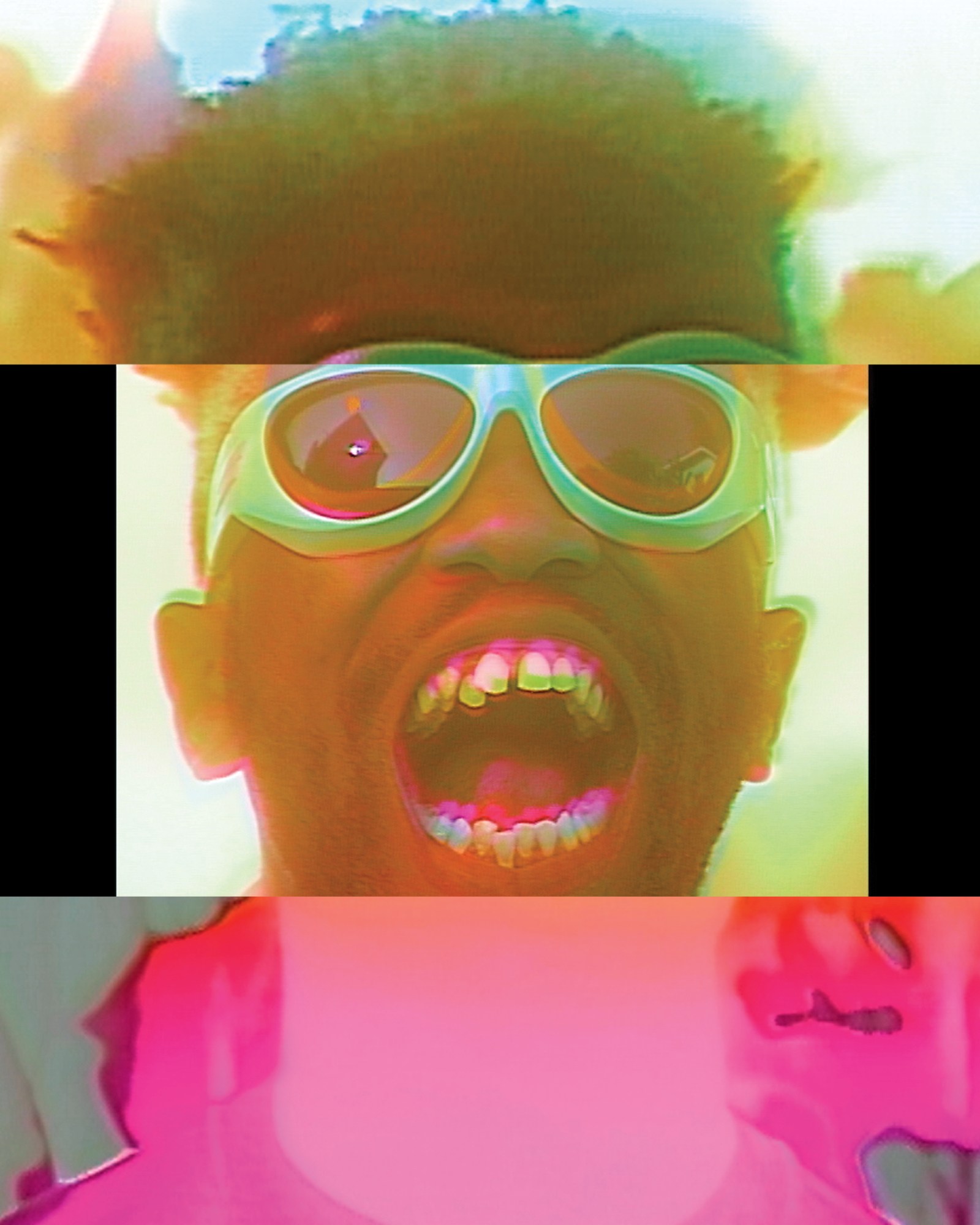
Virgil: What are some of the biggest misconceptions about you guys as a collective, and does the album confront that? Or did you guys say, like, ‘fuck it’?
Kevin Abstract: Our biggest song to date is this beautiful R&B song, so I feel like the reason Rick was so into what he heard was because it felt really unexpected. I think that’s something we tried to lean into on this album, something more aggressive and hard-hitting… but there’s still moments where we have the R&B shit, because that’s just what we like, and we’re good at doing that, so I feel like it’s a mix of both.
Romil: We did keep those expectations in mind, but we didn’t really let it drive us anywhere, because we were just making what we wanted to hear. Even without Brockhampton’s fans, this thing would still exist for us.
Dom: I think it’s a super interesting climate that we live in now. The window that the internet and social media has given into people’s lives has created very interesting para-social relationships, and there’s definitely spaces in this album where that’s addressed. Where it’s like, no matter what you think you may know about me, I’m going to do what I want to do. I think it definitely establishes that common ground with the audience that, like, we appreciate you, you appreciate us. But we choose the direction, we steer this ship.
Joba: 100%. I feel like you can only care so much, you can only love someone so much, you can only do so much, until you surrender to who you are. We really surrendered to who we were.
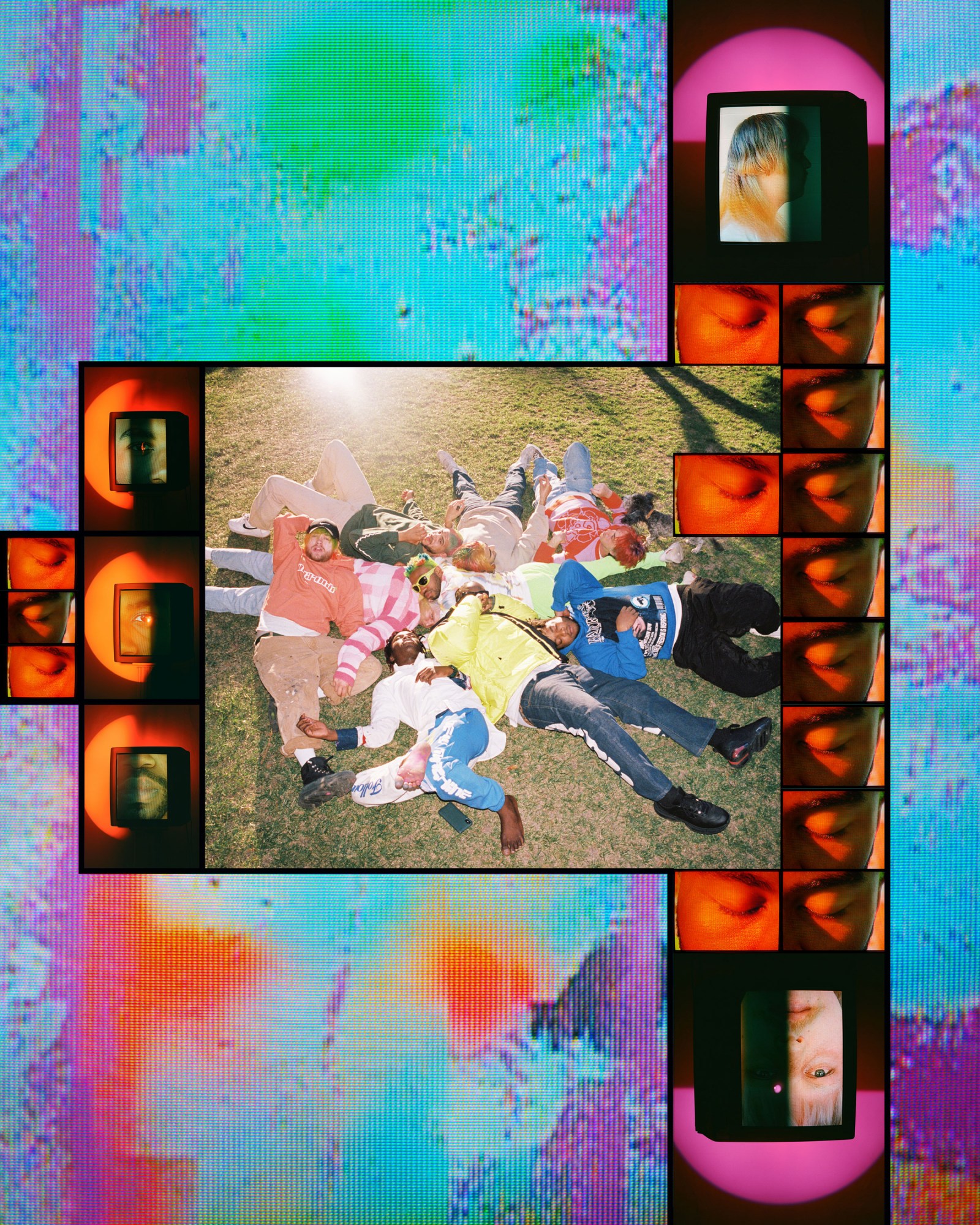
Virgil: There’s moments on the album where it’s glaringly obvious that you guys are looking at the return of the live show. Now that the light’s at the end of the tunnel with the pandemic and those are gonna come back, does this album give you a different type of vision of how to approach it aesthetically or emotionally?
Romil: We did a show at Shangri La, at Rick Rubin’s studio, in the chapel. The staff there were calling it Rickchella. We played our album for our friends and family – it was our first time doing a show for the new album and it was just a really weird experience doing that again, holding microphones and shit.
Dom: It was like riding a bike.
Romil: I can’t fucking wait to go out on tour and see a sea of tie-dye hair, like we all have right now.
Kevin Abstract: This album was the first time we needed something more surreal, that required something more than the DIY-video-outside-the-crib type thing. There’s something weirder about it. I don’t really know what it is yet though.
Dom: It’s a little bit supernatural, but supernatural rooted in technology. This weird singularity type of deal going on with the visuals. I fucked with it so hard.
Merlyn: I love how Virgil described it as like a Salvador Dalí, a collage. To me, I just visualise the tours like our hair is right now – a vivid surreal collage of different experiences.
Romil: It’s like a sport. You guys are athletes on stage. You stretch before the show. You do your warm ups, you perform, you get off stage, do ice packs, cool down. That side of music is so important. It’s almost become a lost art, where putting on a great live show can establish an artist for the rest of their life. Look at Travis Scott, you’re not going to a concert, you’re going to Astroworld! You know what I mean? You’re living in his ecosystem for a couple hours.
Joba: To that point man, any time you step on stage, wherever you’re at, the crowd doesn’t know what just happened in your personal life. You know what I mean? There’s so much that goes into performing, and I love it. I feel like the performance aspect of this album will continue to evolve. It’s going to bring us closer together, it’s going to fuel the next record that we make. I’m excited for that.
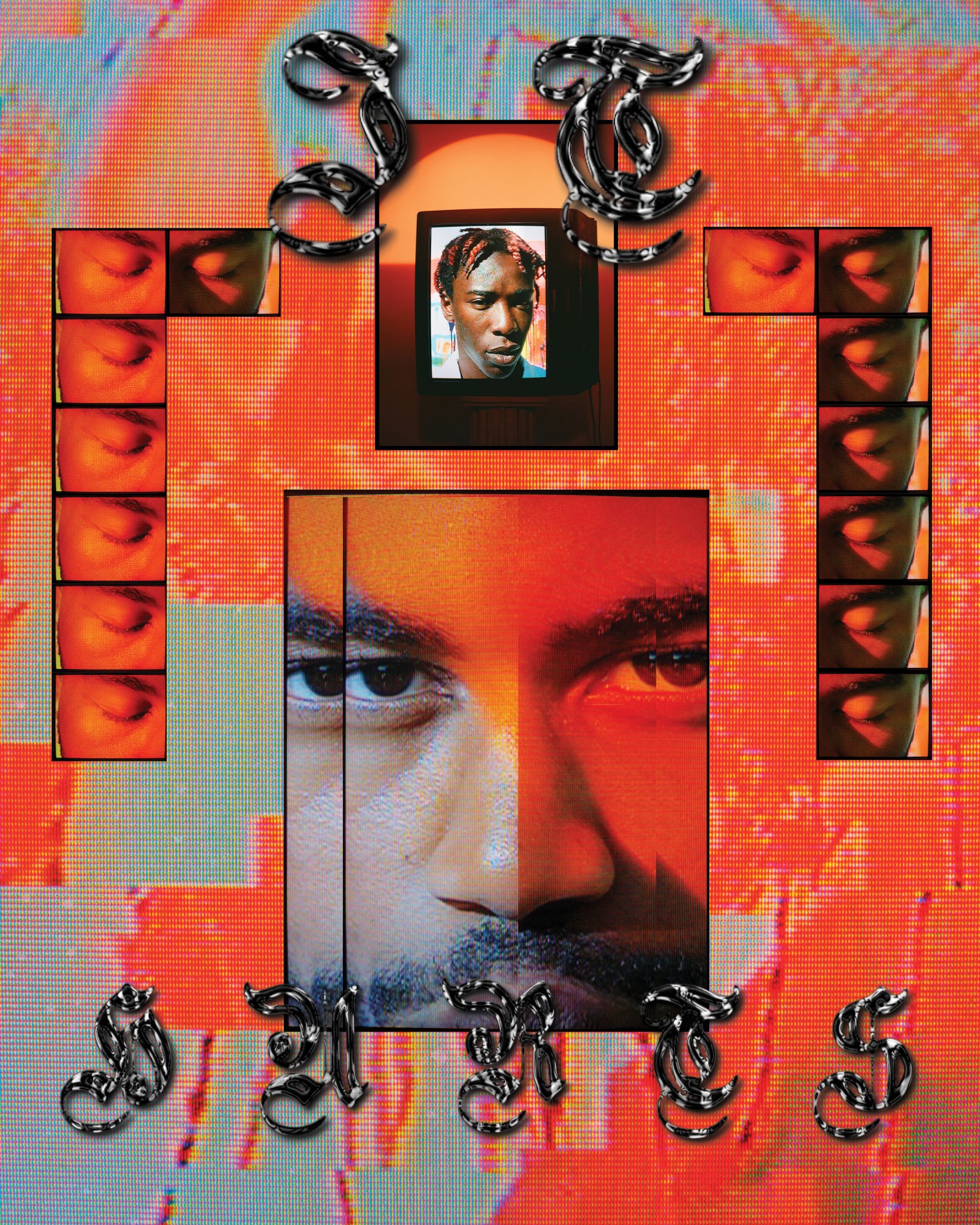
Virgil: Obviously you guys always bring forth superior visuals and art direction, all the tangible stuff that lives around the sonics. I’m excited to see what the live show looks like. Because with an album like this, it can change the concept of what kids expect. And speaking on your following, while you guys are cooking up the album you have a unique fanbase. Fans isn’t even the right word, they are people in your community. What responsibility do you feel when you think of the crowd of kids with tie-dye hair? How does that factor into your creative process?
Merlyn: Responsibility. Responsibility to be true to ourselves so other people can feel less weight to be true to themselves.
Joba: I love our fans but I also feel like they can be a curse.
Dom: I think that what’s most important to remember is that there was a really long period of time where people did not give a fuck about us. Ultimately, a part of me is aware of the fact that even though these people support us, these people love us, there are certain boundaries that I’ve had to establish for my own mental health, to be able to healthily have relationships with the people that support me, without having to fight for space. That’s super important to me.
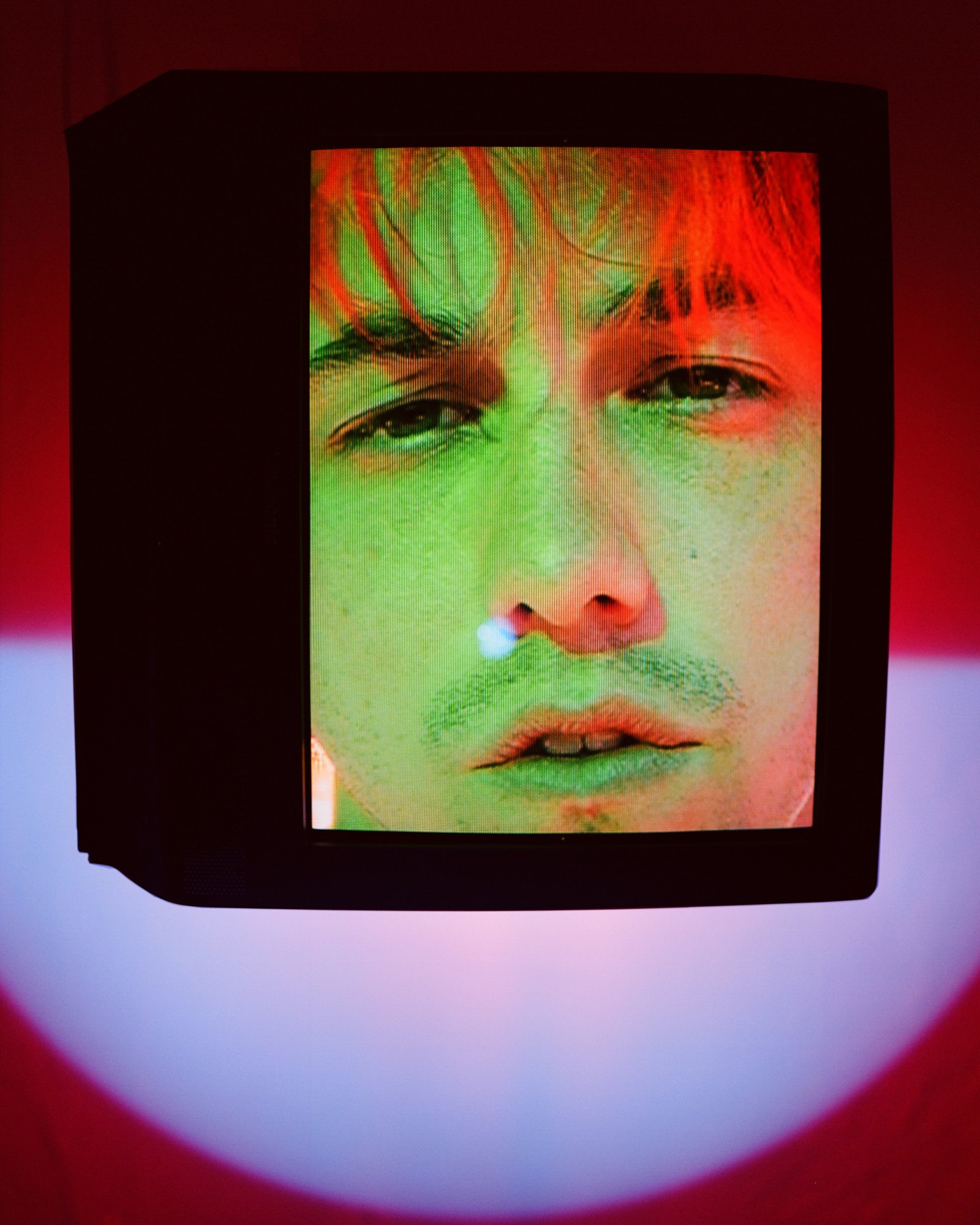
Virgil: Do you guys get sketched out when you’re coming out of the convenience store and kids run up on you out of the blue? Does that throw you off your train of thought? Or it doesn’t fuck with you at all?
Merlyn: Nah, because I got that thang on me.
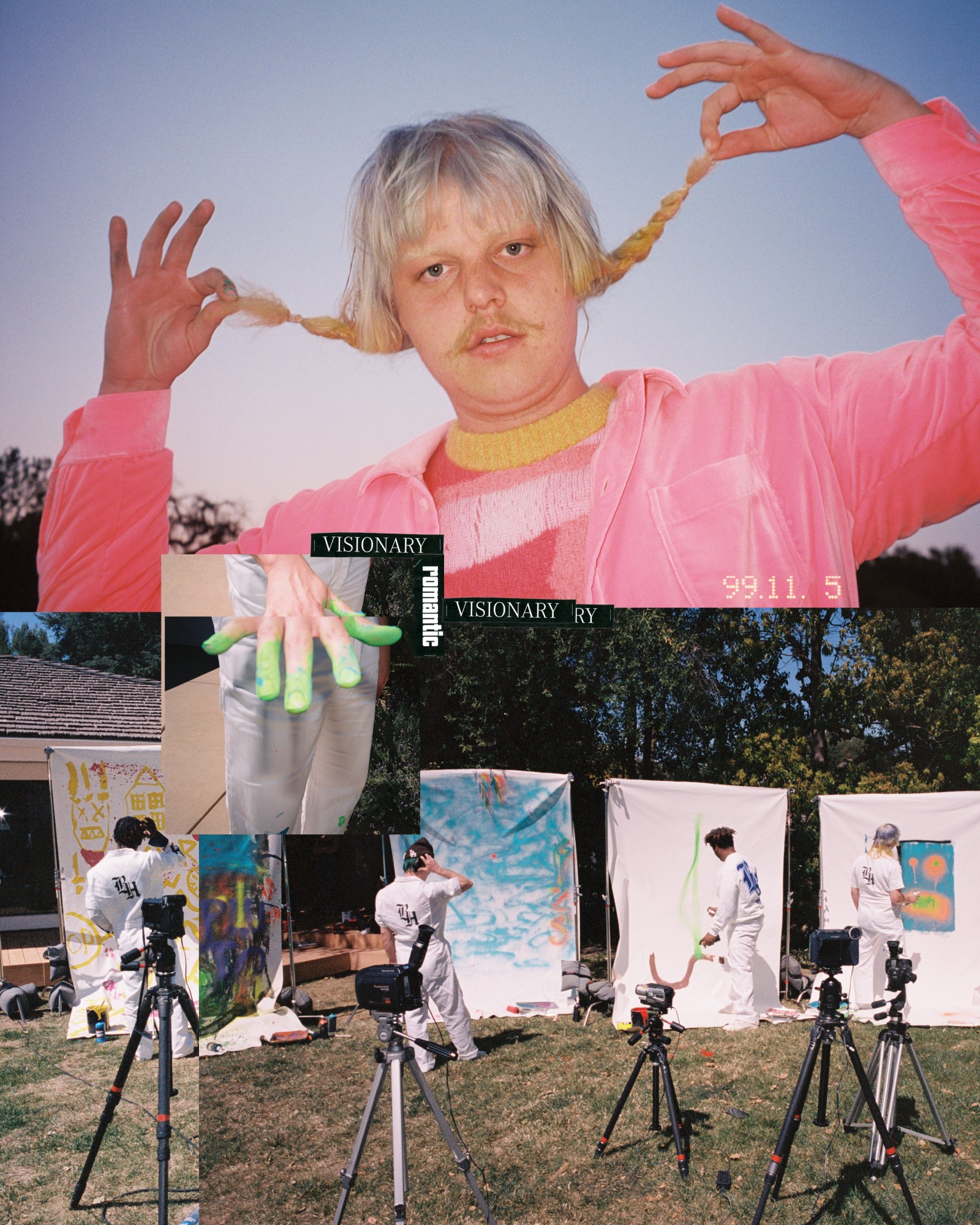
Virgil: And that’s the merch tee for the album!
Romil: I appreciate anybody who takes time out of their day. I read that there’s 1.4 million new songs on Spotify a month, and the fact that people listen to ours? I’m so grateful and appreciative. I would be making music anyways, so the fact that I can have a house and drive a car and eat food and live? I already fucking won, bro.
Dom: It’s a phenomenal privilege.
Jabari: I treat every single person with respect. If we get it back, it’s all cool. No matter what situation I might be in, I might even be with my girl, maybe my family or something. If it’s approached in a nice way, I will still take the picture, talk to the fan. It’s not an issue at all.
Jabari: I appreciate the love.
Merlyn: Joba is somebody that really gives a lot to the fans. He really will listen to their sorrows, care about them. He cares about them like they’re family, looks at them in the fucking eyes. But he said they’re a curse, and I was wondering what you meant by that Joba?
Joba: Have you ever just loved someone too much? It’s so much privilege that it’s overwhelming. I care so much about people. And you can never do enough, man. It’s worth talking about what I’m afraid to talk about. I mean, selfishly, I can connect to those that show up in my life unexpectedly or, like, have their hair dyed in the crowd. It’s beyond all of us. And I can’t even begin to claim to understand just how that makes me feel, and the importance of connection. I know what the opposite of connection is to the point where, like, I’m always trying to connect. If you’re not connecting you’re lost, and there’s nothing worse than that.
Romil: We’ve all been that fan. Something I’ve heard you talk about a lot is the 17-year-old you. I was 17, front row at Yeezus, and I chase that feeling all the time, the way I felt in that crowd. If I can make someone feel a tenth of that with what we do, great. That’s amazing. I have been that fan who sees someone they love and freaks out. We’ve all been in that situation. I’m just grateful people care.
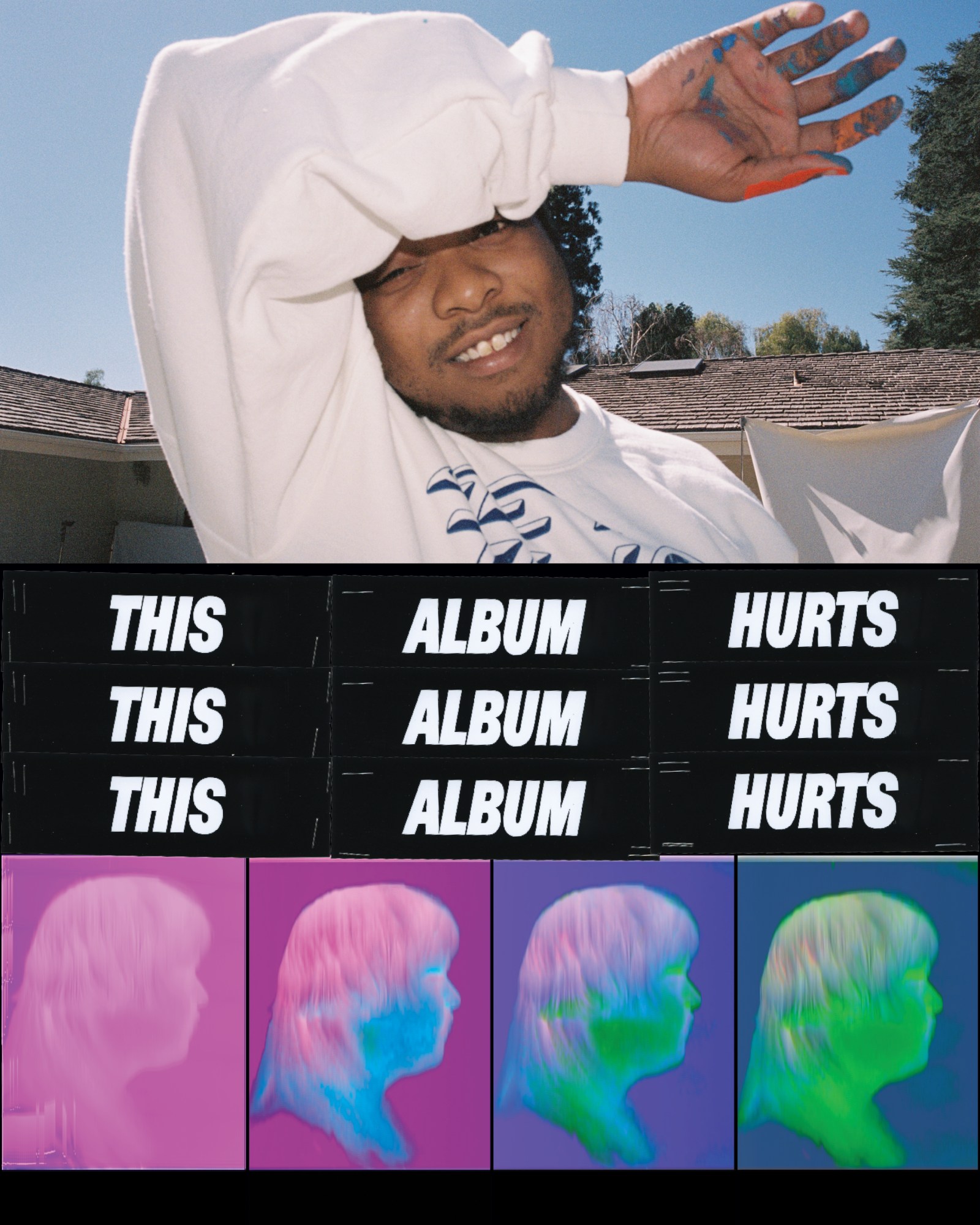
Virgil: You’re hitting on why these albums are more important than the album itself. It’s like, we’re now in this hyperloop where independent spirited artists are now looping back to the next generation. And then you guys are paying it forward for all those kids – they’re gonna grow up one day and focus because you guys opened the door for them. And we’re not even talking about the music industry, we’re just talking about a generational art form and kids beginning to express themselves. It’s sick. Like, those Yeezus shows were just us trying to push the boundaries. A bunch of kids from Chicago trying to solidify the space that we stood in, because people were telling us that we shouldn’t be, we weren’t on the level, and that inspired us to go and land at that place. Who are the biggest naysayers, for you? When you’re in the studio and you’ve finished and you’re like, ‘I nailed that’, do you have an opp in mind? Or is it all peace and love?
Romil: I mean this in the best way, but it’s Jabari. When I try to make a beat, you’re my opp.
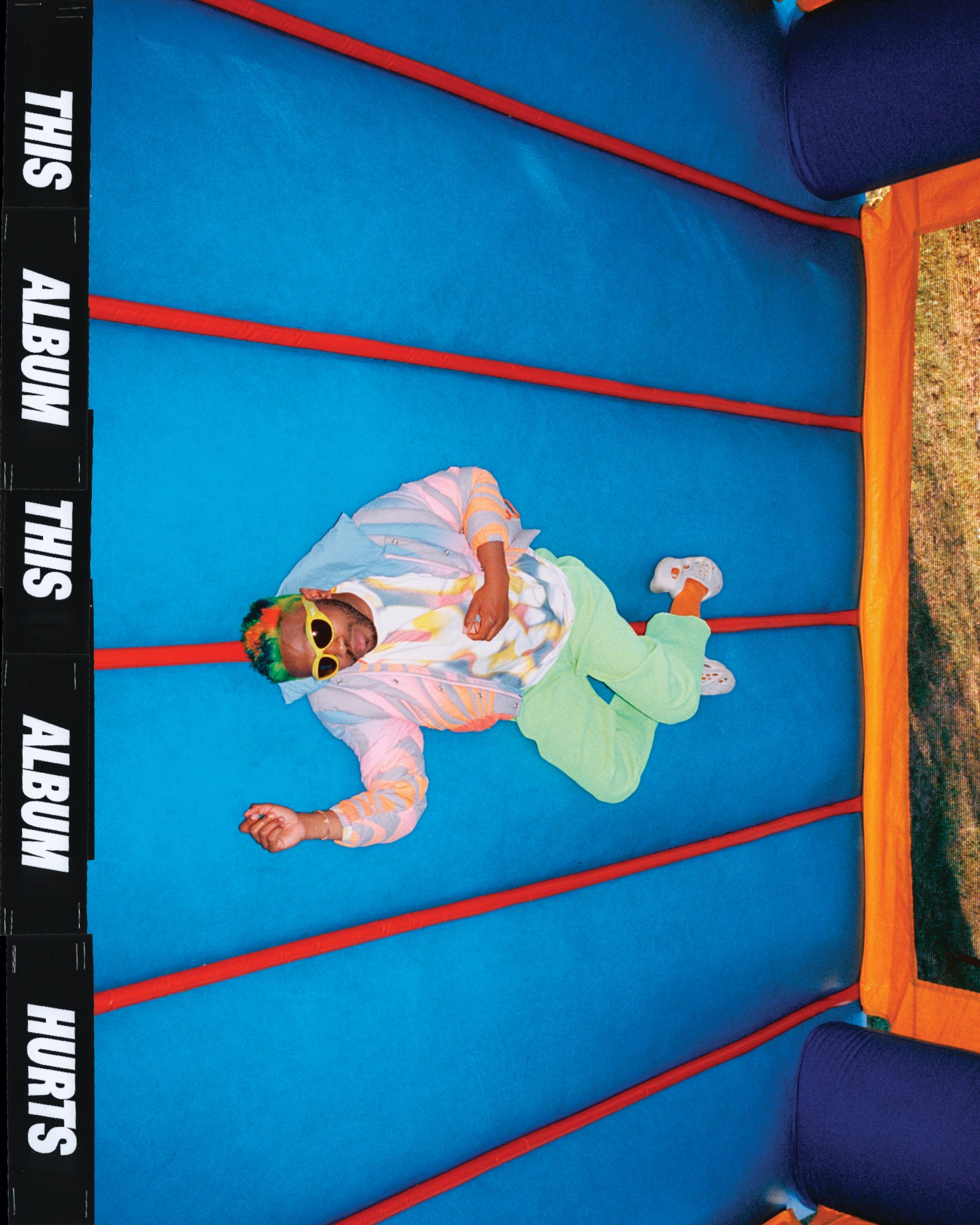
Virgil: That’s hilarious.
Romil: I remember being at Paramount, and we were working all day. I didn’t really make anything good. And then Jabari walks in with some sunglasses on, and he’s like, ‘I got your back’ and he plays all these songs that we recorded on and it’s like ‘What the fuck dude?’
Jabari: I try to battle myself every time I go to the studio, to do better than I did the day before. I think that allows me to not even have to worry about what anybody else in the group is doing. I’m always only competing against myself. It brings me the most peace, but also allows cool things to come out.
Romil: I want to be the fucking best, I want to have the best selling album, the critically acclaimed album, all that. But that’s not ever gonna dictate why I do anything.
Dom: Writing verses for Brockhampton has given me the ability to just focus on doing that as best as I possibly can for the past six years of my life. And at this point, specifically on this album, I felt very much like Usain Bolt at his last Olympics, and he’s just racing against the clock now, seeing how fast he can go. Like Jabari was saying, I feel like that’s one of the biggest driving energies to me, racing against my own clock. If there’s an opp, it would just be the things that I’ve seen break people I know and love down, the oppressive forces of society. It’s not a person, it’s shit that’s out of our control that’s fucked all of us over.
Merlyn: The opp is the audience. I can never be as smooth as Matt Champion, but like, maybe I can see the way the audience reacts to certain words or topics that he addresses. And I’m like, ‘OK, I want to have that reaction, I want people to react like that as soon as my art comes into their field of view’.
Romil: I feel like that with our peers. I look at like Rocky, Tyler, any of these other artists who are driving pop culture right now, and I’m like, ‘I want to compete with that’. And also the people before us. You’re talking about Yeezus, and these other albums before us. That’s also an opp in a sense, like, this is the bar.
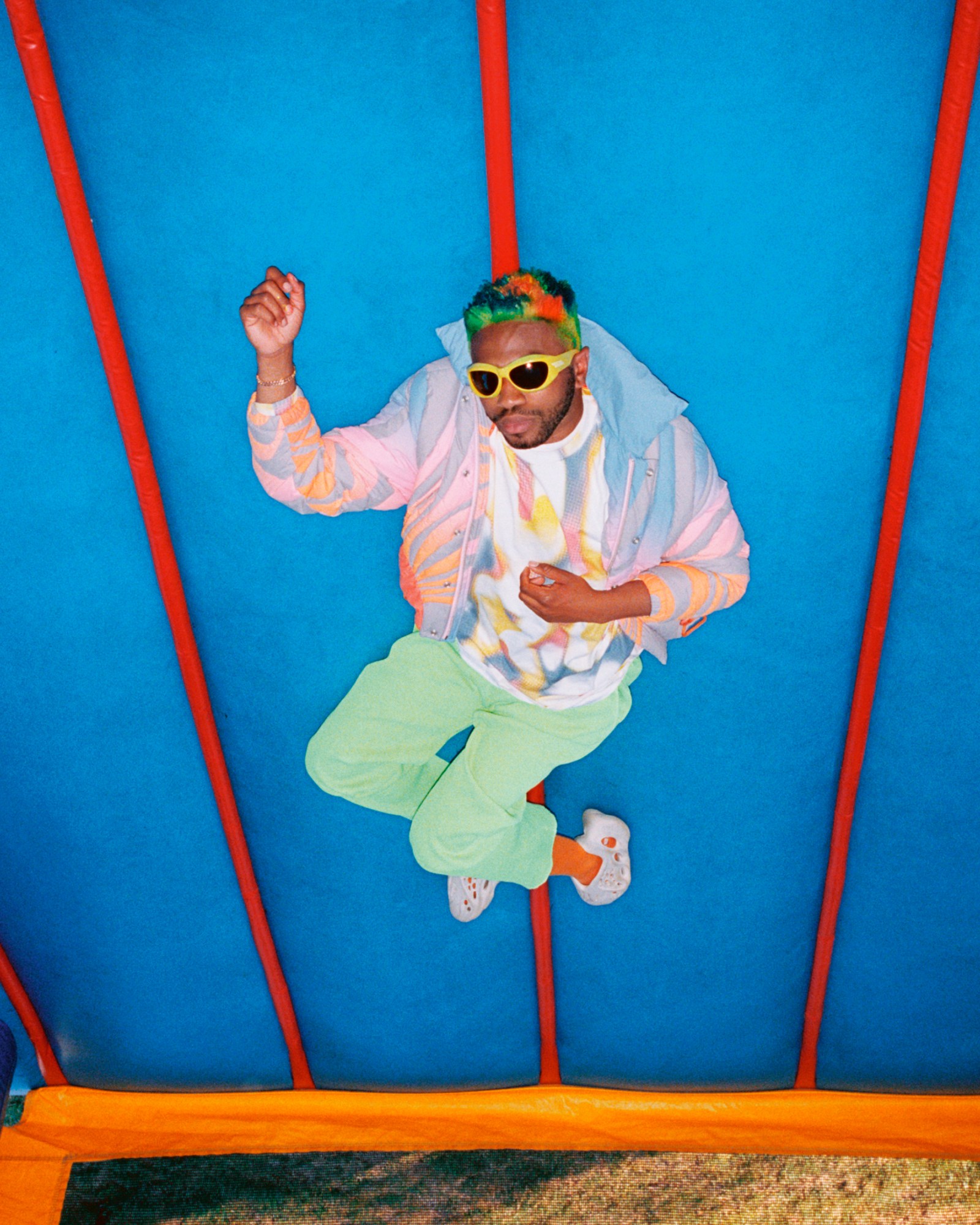
Virgil: Now that you’re in album drop mode, what’s your vision for that engaging moment? Or is it just that you can’t wait for it to drop and then go on to the next?
Romil: I really miss the feeling of being a kid, when an artist you love puts out an album and for a moment it would just feel like the world has stopped. Like that album is the only shit that matters. That’s what I’m always chasing, for the world to stop for a moment for a new Brockhampton record.
Virgil: Well, I’m very proud to do this interview, to historically mark how ill it is that you guys delivered this new album. I can’t wait to see the live show, because I know you guys are gonna elevate on that sphere alone. So let it be Glastonbury. Let it be Coachella. Let it be on the moon. I’m there.
